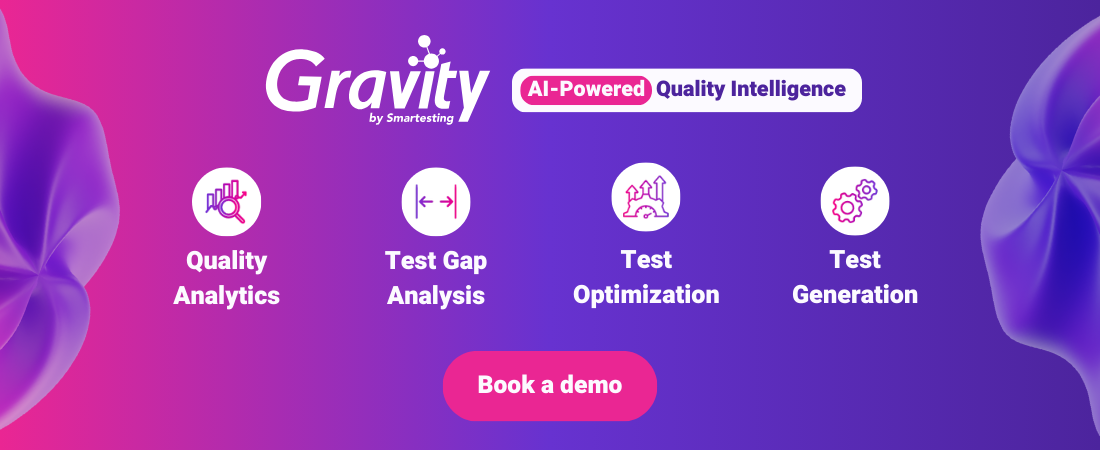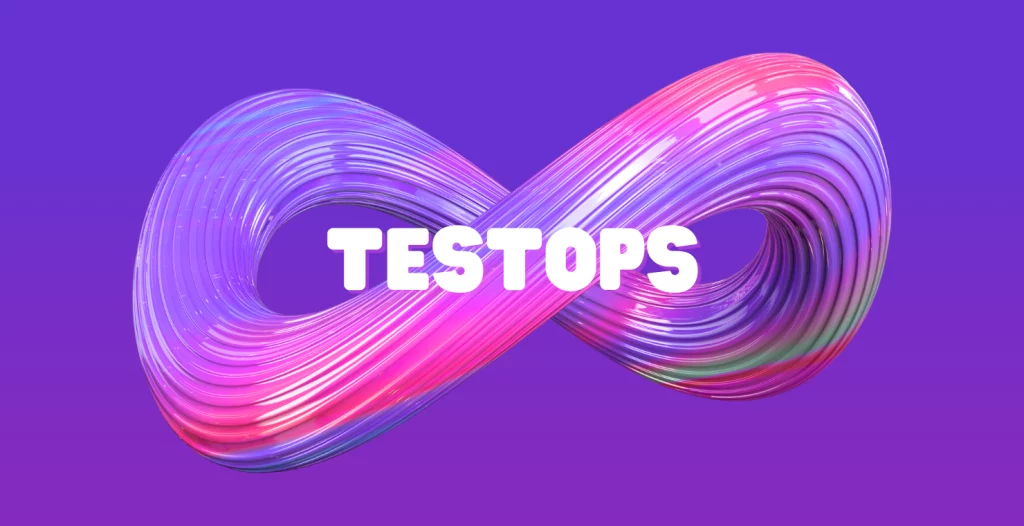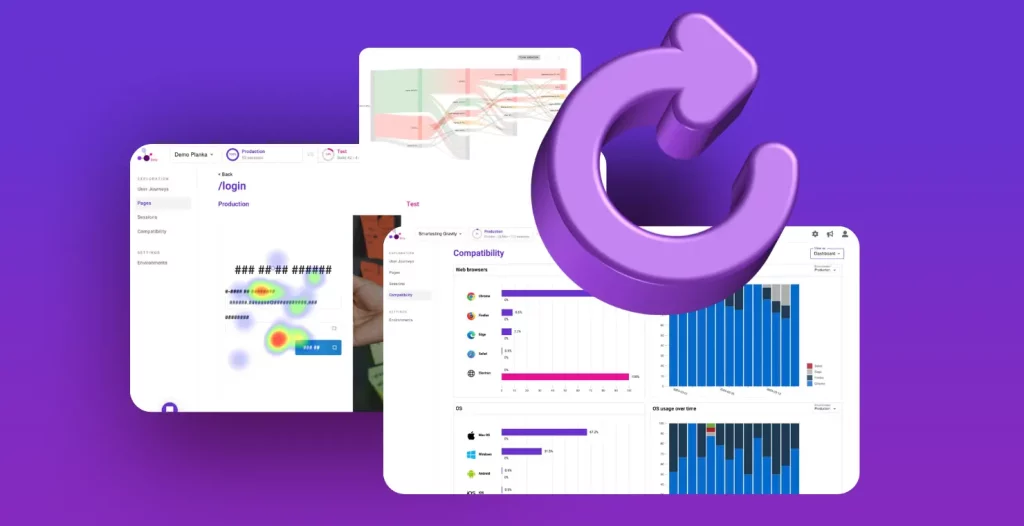Hello everybody! Today, we explore how we can deliver high-quality products efficiently and at an accelerated pace with AI and automation. We all know that achieving this goal is no easy feat, but luckily, we have a powerful ally in our corner: automation testing.
Maximizing Automation Efficiency with AI: Unleashing the Power of Intelligent QA
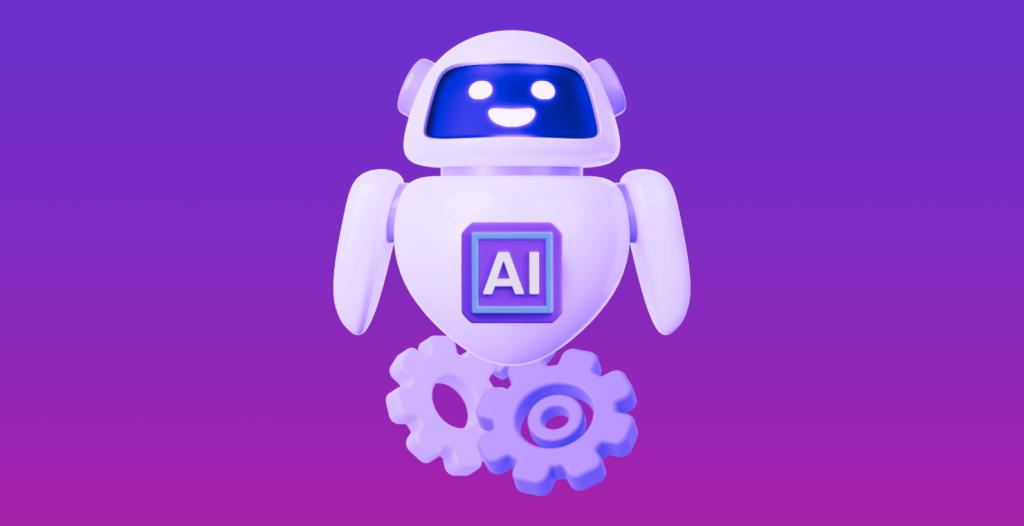
Automation testing has long been a vital component in our quest for excellence, enabling us to establish consistent and reliable testing processes. It has helped us streamline our workflows, identify bugs early on, and deliver software with confidence. But now, we stand on the cusp of a new era in quality assurance. One that is driven by the incredible advancements in Artificial Intelligence (AI).
With the advent of AI technologies, the landscape of software testing is undergoing a profound transformation. AI not only enhances our automation testing efforts but also revolutionizes the very approach we take towards software testing. Let’s delve into specific cases and examples to showcase the transformative power of AI in automation testing.
Let’s begin this captivating journey into the world of AI-driven automation testing!
Smart Test Execution: Agility and Adaptability Combined
In the realm of traditional automation testing, we’ve relied on techniques that have served us well but are starting to show their limitations. The use of rigid test scripts has long dictated every step of the process, leaving little room for improvisation or adaptability. However, with the advent of AI, we find ourselves on the brink of a new era. AI-powered tools have become our trusted companions, constantly learning and evolving with each test execution.
Picture this: you encounter an unexpected error during testing. In the past, this would have been a roadblock, causing delays and frustration. But now, thanks to AI, these tools intelligently reroute the test flow, prioritizing critical paths and bypassing redundant steps. It’s like having a seasoned expert by your side, guiding you through the labyrinth of software testing with ease. This newfound agility enables us to identify and resolve critical issues, supercharging the testing process while upholding the highest standards of quality.
By harnessing the potential of AI-driven smart test execution, organizations can:
- Achieve remarkable efficiency,
- faster delivery cycles,
- all while preserving the integrity of their software.
Intelligent Test Data Management: Simplifying Complexities
Managing test data has long been a challenging and time-consuming endeavor. However, with the advent of AI-powered solutions, we now have a powerful ally in simplifying this complex task. These algorithms bring a new level of intelligence to test data management, analyzing and categorizing data sets to ensure their relevance to specific testing scenarios. This intelligent categorization not only helps identify patterns and anomalies but also automatically flags potential data-related issues.
For example, when testing an e-commerce platform, they can detect any inconsistencies in product prices or shipping information. All, guaranteeing accurate and reliable test results. By streamlining test data management, they empower organizations to devote more time and energy to essential testing activities. With AI as our partner, we can navigate the complexities of test data management with ease and confidence.
Automated Defect Analysis: Uncovering Issues Faster
Defect analysis is a critical aspect of the testing process. AI-powered automated tools leverage sophisticated machine learning techniques to dig deep into test results, compare them against expected outcomes, and quickly flag any anomalies that pop up. Drawing insights from historical defect data, these smart algorithms can spot patterns and potential trouble spots in the software. For example, if a specific module keeps acting up, our AI-powered tools raise the alarm, allowing us to investigate and resolve the issue. Thanks to automated defect analysis, we can nip problems in the bud. That ensures speedier detection and resolution and delivers software products that we can truly rely on.
Read our blog post about The Importance of Test Automation
Predictive Analytics for Test Planning: Optimizing Resources and Effort
AI’s predictive analytics capabilities emerge as invaluable assets to make data-driven decisions about testing strategy. By delving into historical data and employing sophisticated analytics, AI becomes a reliable compass, guiding us toward effective strategies. Drawing on past defects, it identifies areas of higher risk and provides estimates on the effort required to test various components. Armed with this knowledge, you can allocate the testing resources efficiently, prioritize critical areas, and optimize costs. With AI’s predictive analytics, we can optimize our test planning, improve time-to-market, and achieve higher testing effectiveness.
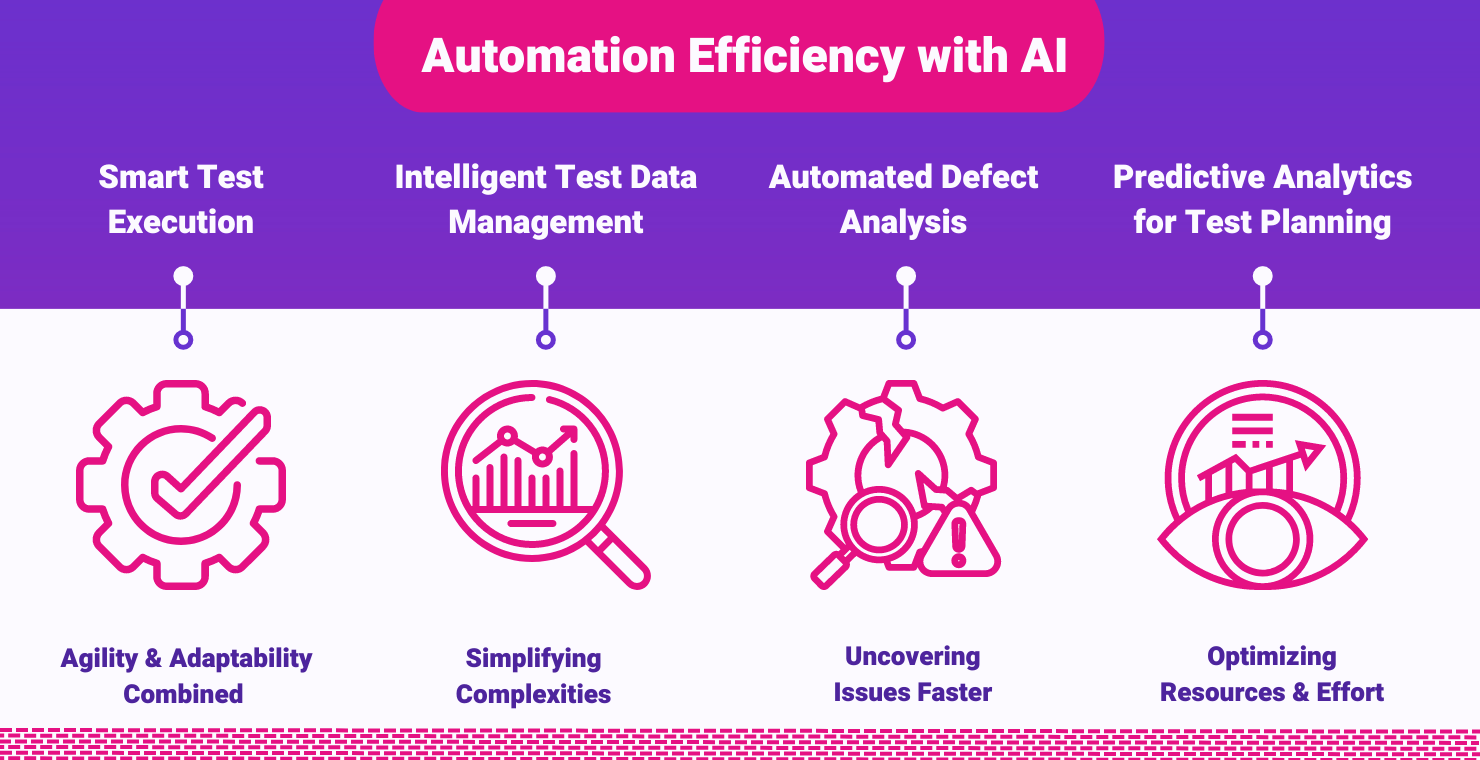
Let’s conclude
In conclusion, the integration of AI into automation testing has unlocked immense potential for organizations seeking to maximize efficiency and unleash the power of intelligent QA. By embracing AI-driven solutions, organizations can revolutionize their automation testing processes and achieve faster, more accurate, and more comprehensive testing outcomes.
From intelligent test case generation that adapts to changing requirements to smart test execution that prioritizes critical paths and skips redundant steps, AI empowers organizations to enhance the agility and adaptability of their testing efforts. Additionally, AI-driven test data management simplifies the complexities of handling and categorizing test data, ensuring accurate and reliable results.
Automated defect analysis powered by AI enables organizations to uncover issues faster and streamline the debugging process, resulting in more robust software products. Moreover, predictive analytics for test planning helps optimize resource allocation, prioritize critical areas, and reduce costs, ultimately improving time-to-market.
As the field of AI continues to evolve, organizations must explore and experiment with AI-driven tools and technologies. By doing so, they can harness the full potential of AI in automation testing, driving innovation and excellence in their QA efforts.
AI automation In short words
In conclusion, AI is a game-changer in automation testing, empowering organizations to achieve higher efficiency, accuracy, and productivity.
And you, what do you think about AI in testing software? Tell us in the comments.





